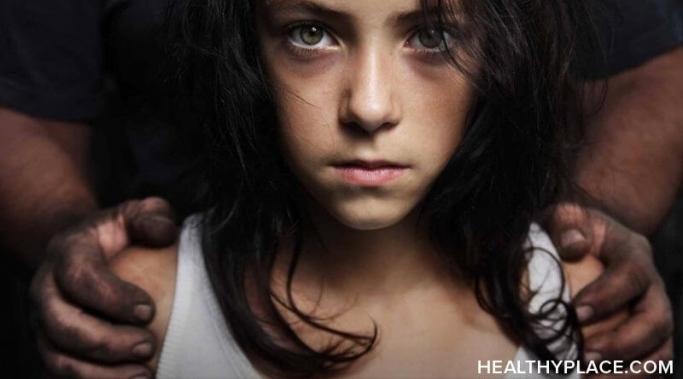While it has been proven that anyone—no matter their life circumstances—can suffer from an eating disorder, some people who experience acute trauma could be more vulnerable to this illness than others. So, I think it's important to raise awareness for the prevalence of eating disorders in human trafficking victims.
Media Portrayal of Eating Disorders
Lately, it seems like my social media feeds are overrun with weight-related memes about how many pounds have been gained in self-quarantine; but, it's worth noting for the record that all those weight-related memes are not funny to everyone. As someone who is on a lifelong mission to recover from my eating disorder—and continues to face body image distortions—I know firsthand just how toxic these weight-related memes can be. While I understand the vast majority of posts are meant to be humorous and lighthearted, I cannot overlook the harmful effect such messages could have on those who already fixate on their bodies. So it's important to remember, those weight-related memes are not funny to everyone.
Competitive sports can create poor body image problems which can lead to eating disorders. There are reasons why this happens to both men and women, and there are ways to lessen poor body image and eating disorders in competitive sports.
The rate of eating disorders in the transgender community is an epidemic. While it has been estimated that over 30 million people in the United States alone suffer from eating disorders1, how many of these individuals conform to the heteronormative standards of body and gender—and how many don't? The research into this question is sparse, but there is enough to infer that eating disorders in the trans community are both epidemic and overlooked. While the archaic notion that eating disorders tend to primarily affect those who are female, white, and cisgender has been dismantled in recent years, the transgender population is still marginalized—or worse, excluded—from this conversation. Their stories of body-centric violence, trauma, prejudice, and exploitation have caused untold numbers of transgender people to fall into a cycle of disordered eating behaviors. But it's time society is made aware of these men and women in the transgender community who suffer—and recover—from eating disorders, so this epidemic will not be overlooked anymore.
Eating disorder recovery is arduous enough on its own, but add in the harmful reality that some eating disorder behaviors are endorsed by wellness culture, and healing from this issue can seem downright impossible at times.
There is a common—and dangerous—eating disorder stigma in society that says eating disorders result from vanity and a need for attention, but the truth is, eating disorders are not for the vain. This eating disorder stigma minimizes just how severe and catastrophic these illnesses can become while reinforcing the belief that sufferers cannot reach out for help, lest they be dismissed as attention-seekers fixated on their own appearance. But in order to dismantle this added layer of cultural stigma that keeps so many victims both silent and ashamed, it's important to realize that eating disorders are not for the vain. Rather, they are caused by intricate, nuanced factors that are often unrelated to vanity and rooted instead in trauma, self-loathing, or insecurity.
Have the attitudes and conversations around female body image shifted in the era of #MeToo? Is this movement helping to reinforce how bodies should be viewed and talked about? Has it encouraged women to love, accept, and embrace their own bodies, as opposed to self-deprecation and shame? Will positive changes take root, so that female body image is less distorted in the era of #MeToo?
While I recognize that social media has given rise to many important and positive strides in the global economy—and I'm not here to condemn it—sometimes I wonder, is there a correlation between social media and eating disorders? As a disclaimer, first I will concede that I use social media, so I am aware it has benefits. My husband has built a career in social media marketing. I communicate with one of my closest friends, who lives in London, on Facebook. I have made all sorts of personal and professional connections on Twitter, Instagram, and LinkedIn. So the purpose of this article is not to demonize social media or critique those who are active on these networks, but to examine if there might be a correlation between social media and eating disorders in this hyper-connected world.
The mainstream culture needs more advocates for eating disorder awareness—and as someone in pursuit of healing for your own life, you could become an advocate.
Most mainstream eating disorder films offer stereotypical representations of people with eating disorders. It’s important for our storytellers to start offering honest and responsible portrayals of eating disorders that speak to a wider spectrum of people.









